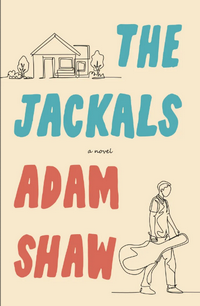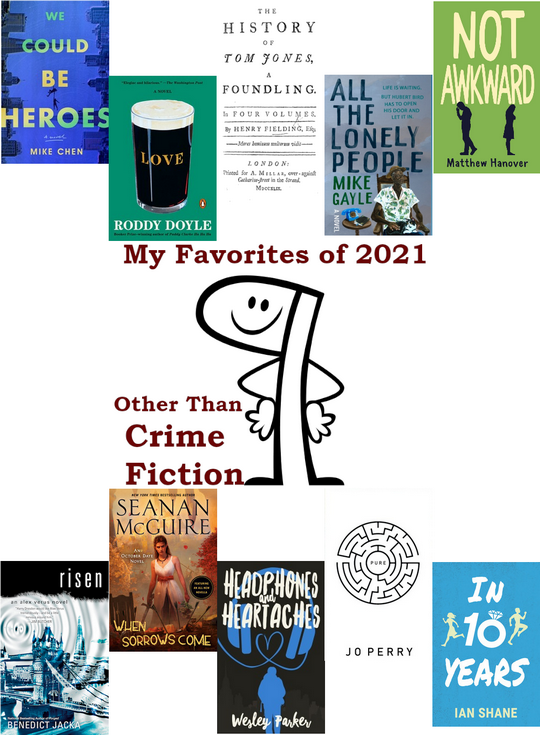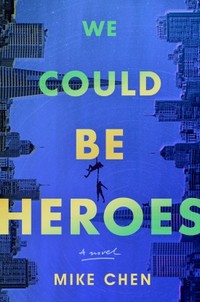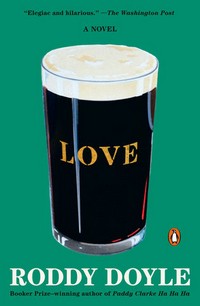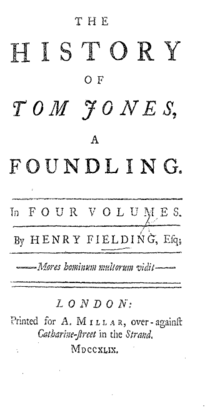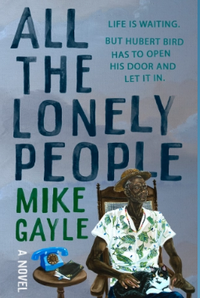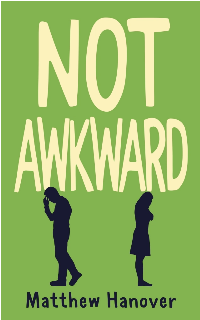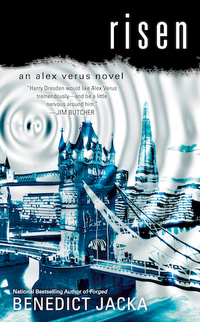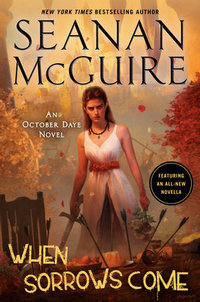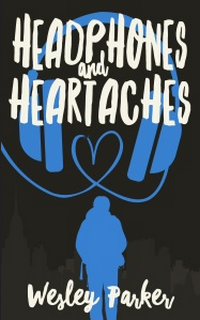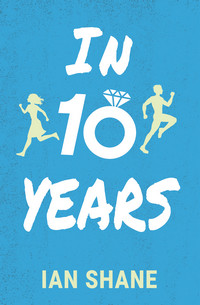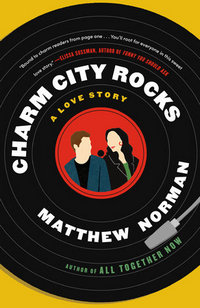 Charm City Rocks
Charm City Rocks
DETAILS: Publisher: Dell Publication Date: June 6, 2023 Format: Paperback Length: 339 pg. Read Date: January 9-10, 2024

What’s Charm City Rocks About?
Billy Perkins is happy. Everyone knows this–he’s got his dream job (music teacher), he’s good at it–and makes enough money to keep going. He’s got a great kid, and a solid relationship with the kid’s mother. He’s well-liked in his neighborhood and at Camden Yards. Who wouldn’t be happy? He’s also got this newfound appreciation for cardigans, “the perfect garment, like, the convertible of sweaters”–and he looks good in them. If you can find pleasure in the little things like that…why not be happy?
Margot Hammer is a drummer best known as part of the all-female rock group Burnt Flowers*. Then as the wife of Lawson Daniels, the giant movie star, her fame grew even more. Then she dumped the cheater, quit the band in a dramatic fashion, and vanished from the public eye, becoming a “whatever happened to…” name. She was pretty satisfied with that until Burnt Flowers is featured in a documentary series, which renewed that itch to play again and generally reminded her of what she lost with her bandmates.
* Not for nothing, that’s just a great 90s band name. I would thoroughly enjoy hearing Norman talk about coming up with it and what some of the other contenders for that name were.
But after listening to his dad talk about Margot after seeing her on that history of rock documentary on Netflix, Billy’s son, Caleb wonders–what if his dad isn’t as happy as he could be? Is he maybe a little lonely? So Caleb does something harebrained, problematic in several ways, and destined to fail.
He brings the two together in a move straight out of a rom-com’s first draft, but instead of the meet-cute he hopes for–we get kind of a meet-ugly. Billy, being the almost-impossibly decent guy that he is, tries to salvage the time and make it up to her. Also…how often does he get the chance to spend time with his all-time favorite drummer?
Something strange ensues for Margot–she has fun. With Billy and in general. She also gets a little social media attention (which spills over into mass media). This is enough to get her old record company to try to capitalize on that. She’s not interested in doing that, but does decide to spend a little more time with Billy.
The pair have great chemistry–and maybe more. But will figures from their pasts derail them? Should they?
Baltimore
As they stand on Thames Street, he imagines the neighborhood from Margot’s perspective. Daquan is one block over, pounding away. The sun is moving toward the horizon. The twinkly lights strung around the outdoor eating area at the Greek restaurant next door come on, and people are out with their tattoos and interesting outfits and cool beards. Like always, there’s music everywhere.
“It’s not like how everyone says,” says Margot.
“What isn’t?”
“Baltimore,” she says. “I thought it’d be, I don’t know, more murdery.” …
“Be patient,” he says. “The night is young.”
As much as this book focuses on the love story between Billy and Margot, there’s a strong thread about love for Baltimore. I knew, on some level, that there has to be more to the city, but at the end of the day, I really think of Baltimore in much the same way as Margot in the quote above.
But that’s not Matthew Norman’s Baltimore–and it’s not the Baltimore of these characters. Frankly, if this Baltimore resembles the actual thing, I’d love to spend time there (you know, assuming I can shake the David Simon associations).
There are two neighborhoods (that don’t seem too far apart) that we spend most of our time in–and both have a strong sense of community about them. Particularly the area that Billy’s apartment is in, which also contains the place where Caleb’s plan was executed and the bar that the adults found themselves in to recover. The neighborhood figures from this area both grounded and sold the experience for me (and, I think, Margot). Too often people talk about the location of a novel/movie being another character–but when someone depicts their setting so strongly and so warmly, it’s hard not to resort to that kind of language.
Caleb
I’ve frequently talked about great Mother/Daughter and Father/Daughter relationships in various books, but I don’t think I’ve talked much about great relationships with sons. I also can’t think of many off the top of my head.
The relationship between Caleb and Billy, however? It’s a standout. Caleb’s relationships with his mother and stepfather are good to see, too. But man…the link between Father and Son here is something special. The lengths that Caleb went to in order to give his father a shot at happiness–and the life-altering choices he makes because of his parents (particularly, it seems, his father)–tells you a lot about this kid and the bond he has with his parents. I really can’t think of a better son in Fiction (not that I’ve spent a lot of time trying, but authors seem to do better at daughters).
He gets off a little easy when it comes to the shenanigans he got up to in introducing his dad to Margot, really the more I think about it, the worse it was (but consuming a large amount of edibles thinking they’re just candy is a pretty good justification for it). But, I think Norman is right to cut him some slack and not get into just how bad it was. Actually, most books (and almost every movie I can think of) would’ve allowed Caleb’s scheme to work for a bit, and would extend the nonsense for far too long before having it collapse for the sake of drama. I am so, so, so glad that Norman didn’t do that. He simply let the idea fall apart and then moved on, making lemonade out of Caleb’s citrus offering.
So, what did I think about Charm City Rocks?
I knew I should’ve read the book as soon as it landed on my doorstep in June. I knew I was missing out on something–and I was. But on the plus side, it’s a pretty good way to start off the year, too. This is just a fun book.
So I loved the whole super-star story and the debacle Margot made of her career and life–it’s a very VH-1 Behind the Music tale. All the behind-the-scenes show business stuff, both in the past and present, were great. But what sold me was the connection both Billy and Margot (and several other characters) had to music–listening to it, performing it, creating it–even just thinking about it. Strip away fleeting fame and money, that’s what counts. That’s why people care about musicians, it’s because of the music that they bring us and what it does for our souls and psyches. As Norman celebrated that, you couldn’t help but respond. (and as flakes wanted to twist that for their own benefit, you respond as well)
One shouldn’t overlook Caleb’s mother–even though I pretty much have–her ARC isn’t pivotal to the book as a whole, but it’s so satisfying. She’d be an easy character to bring on for a few scenes as a plot complication, or just to add a little flavor to the world–but Norman fleshes out her character, gives her an arc, and gets the reader invested in her and her happiness.
There’s another ex- in the picture, and while you know how they’re going to complicate the characters’ lives almost instantly upon their introduction, I can’t bring myself to get into the details. I wanted to say something about a jealous toddler wanting their discarded toy just because someone else has it–but Norman wisely takes that option away. That’s not to say that the character doesn’t muck things up pretty seriously for almost everyone in the book…I’m just saying they’re not a monster.
I think the best way to sum up my reaction to the book is that I noticed that every time I put the book down for some reason, I was grinning. Not because I set the book down, but it just made me happy. Not Billy-happy, but happy.
A little cheesy? Sure. Generally predictable? Sure. Engaging, charming, witty, optimistic, and upbeat? Sure. If you’re looking for more in a rom-com, you’re not looking for a rom-com. This won me over in the beginning and kept my affection throughout. This was a sure-fire winner for me.

This post contains an affiliate link. If you purchase from it, I will get a small commission at no additional cost to you. As always, the opinions expressed are my own.
![]()


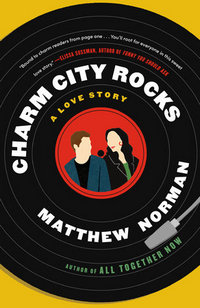

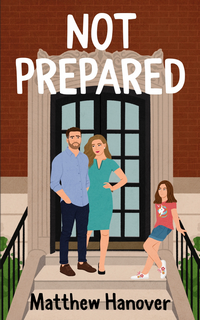
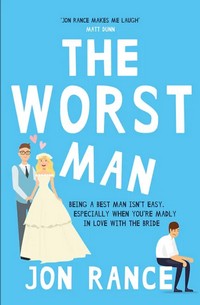


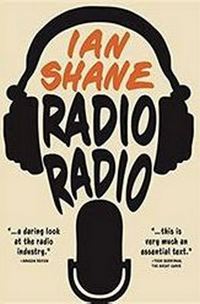


 Grab a book, any book.
Grab a book, any book.